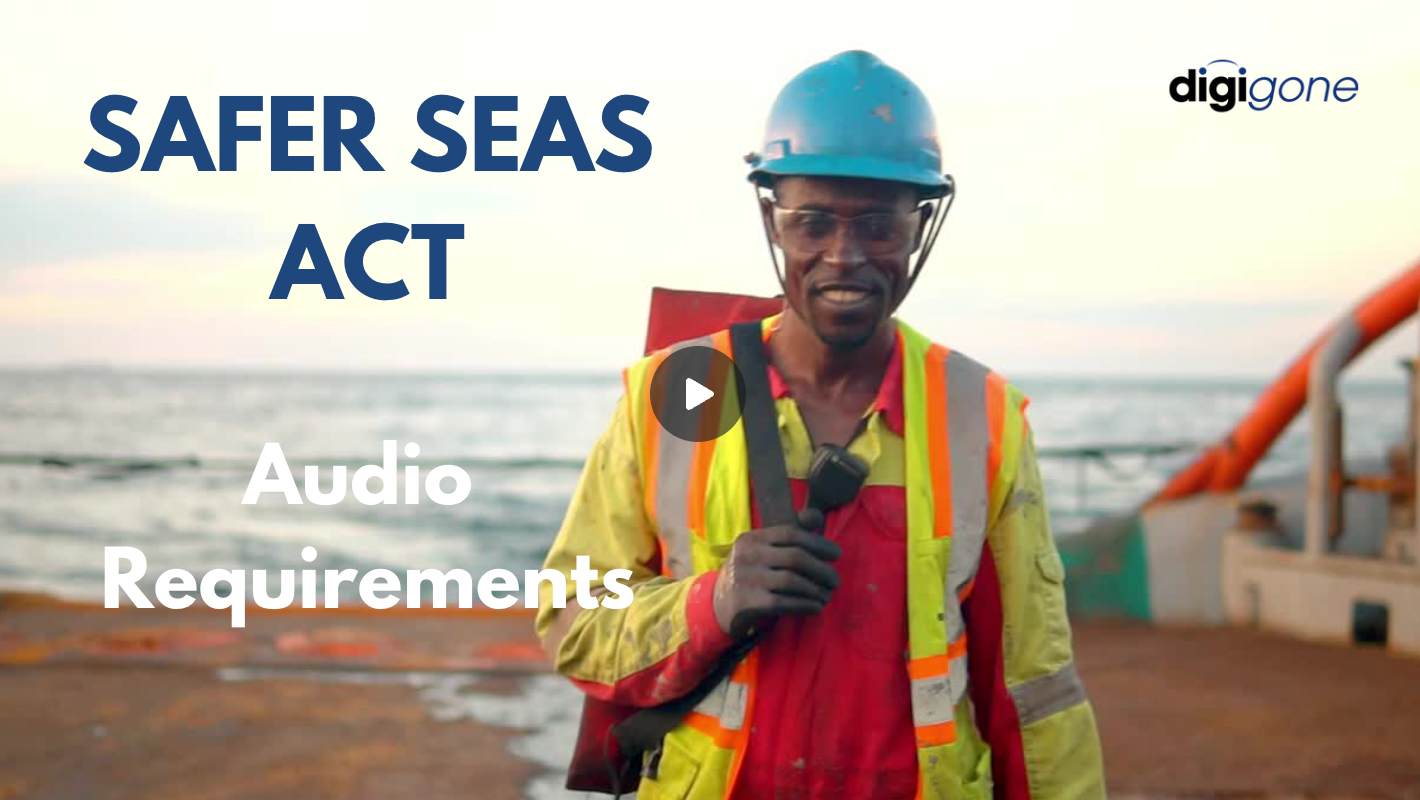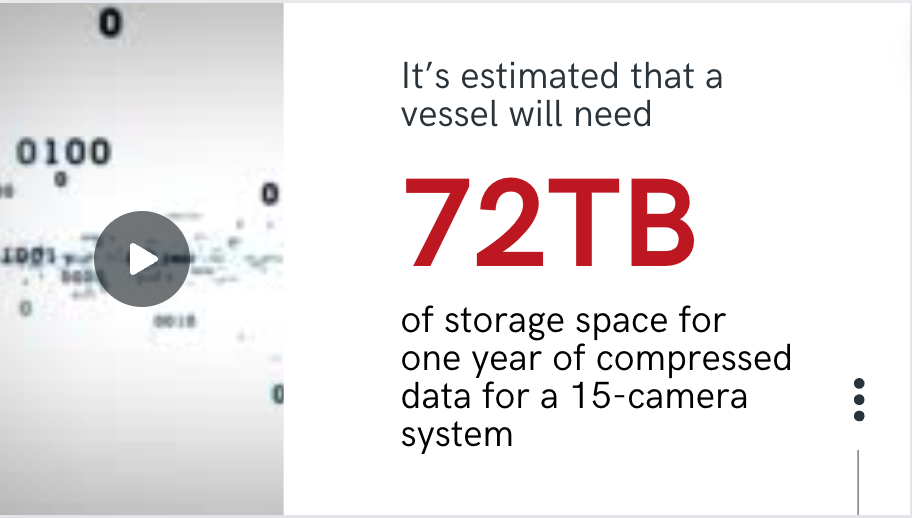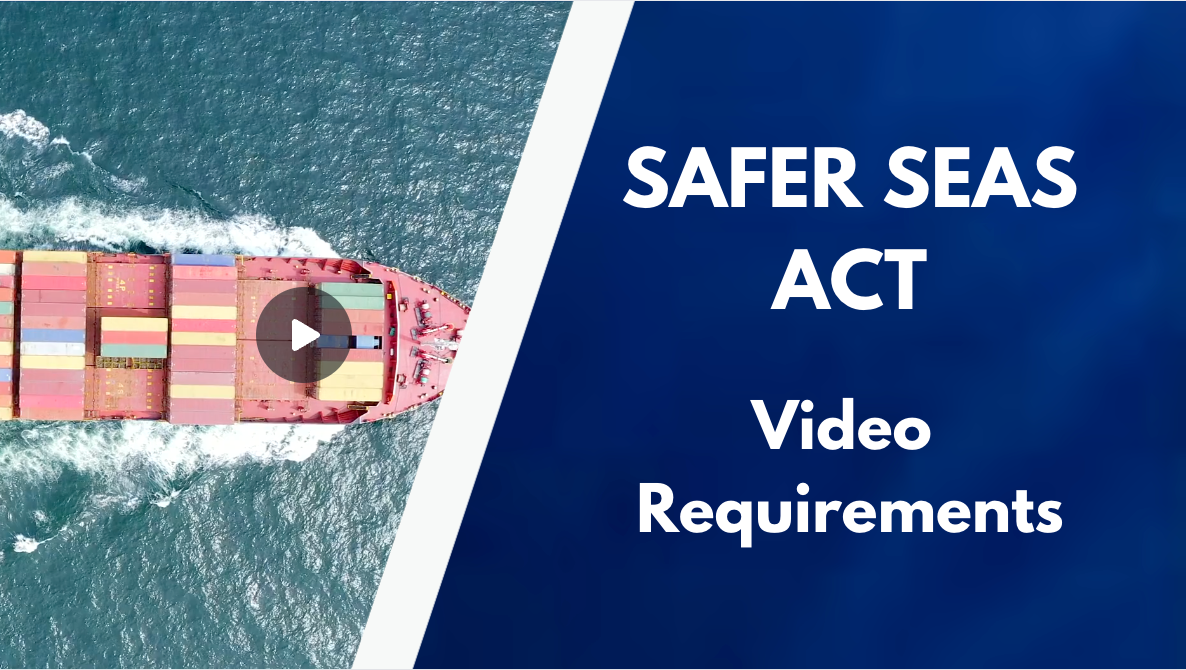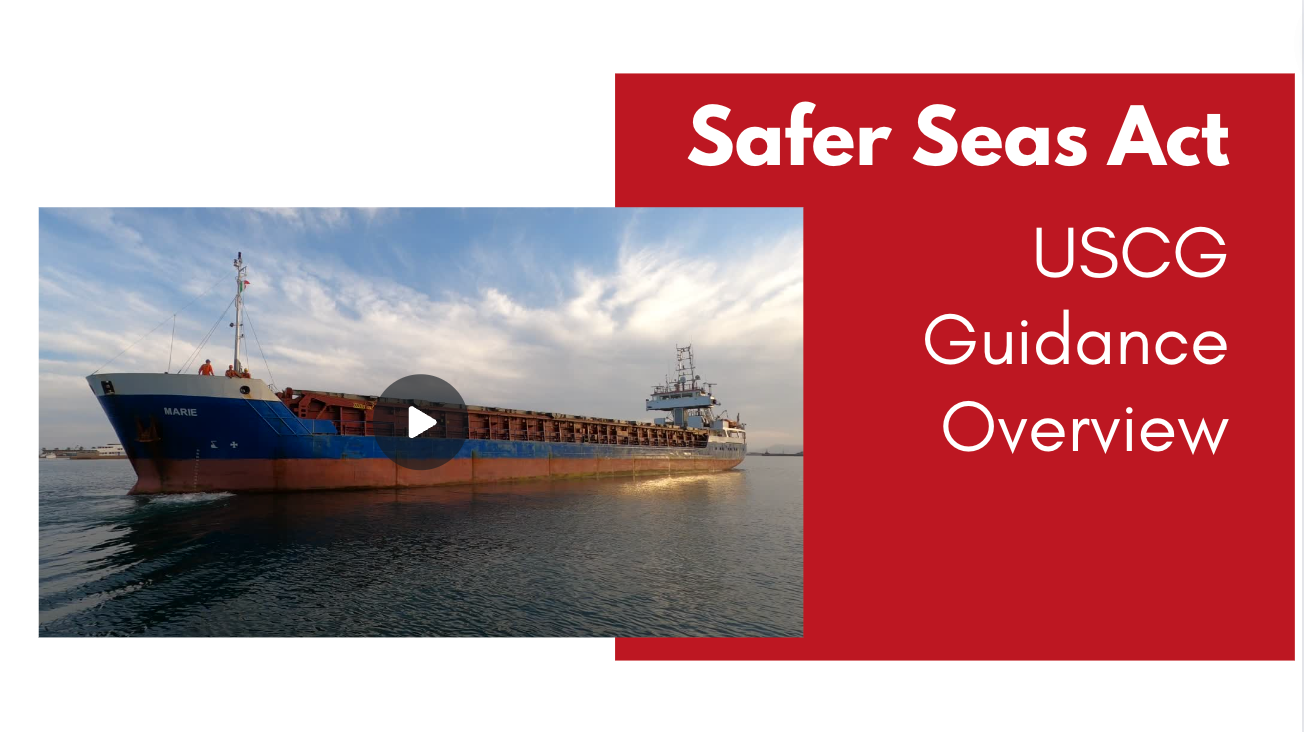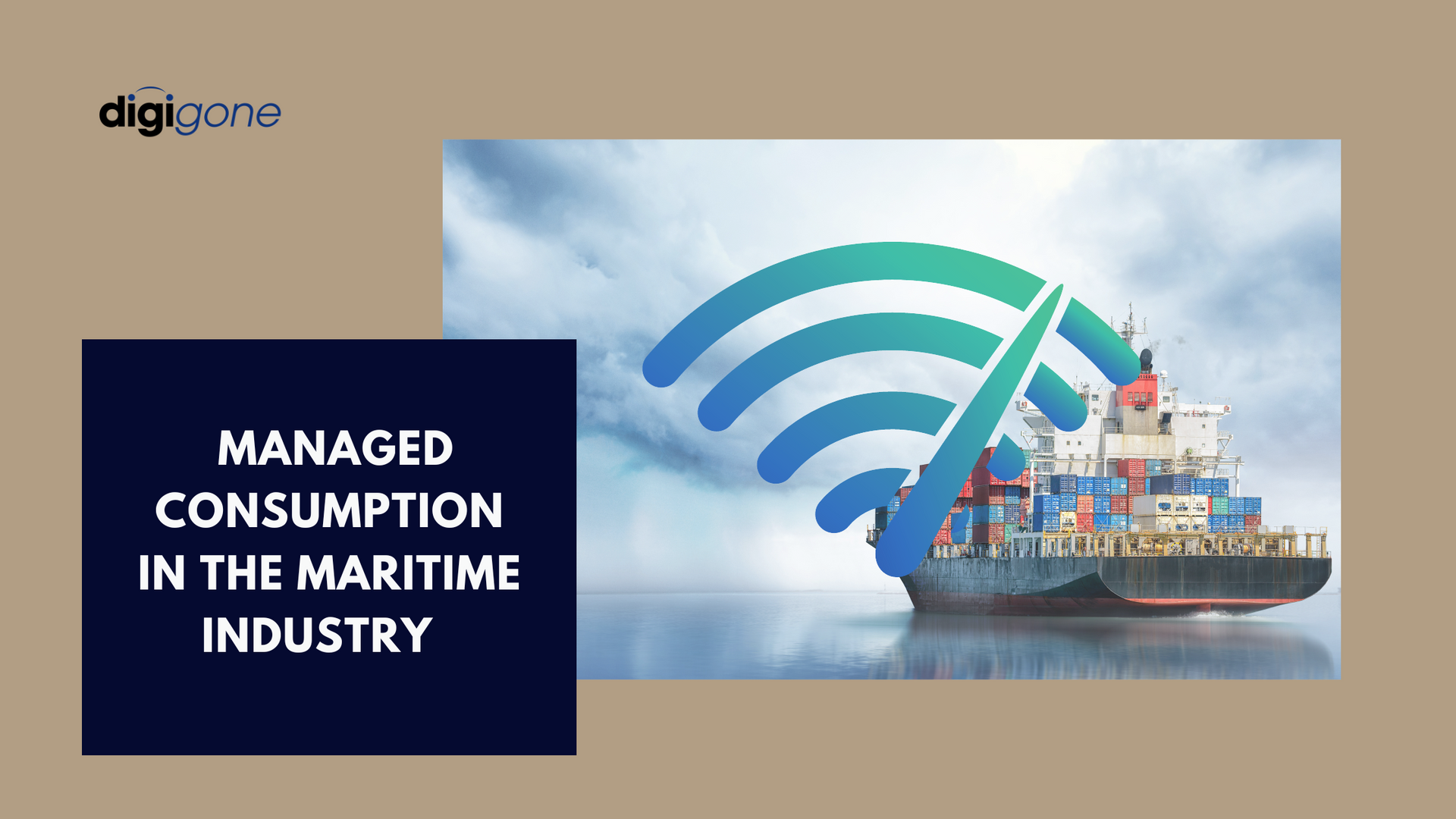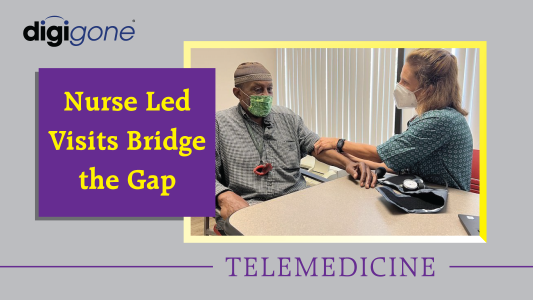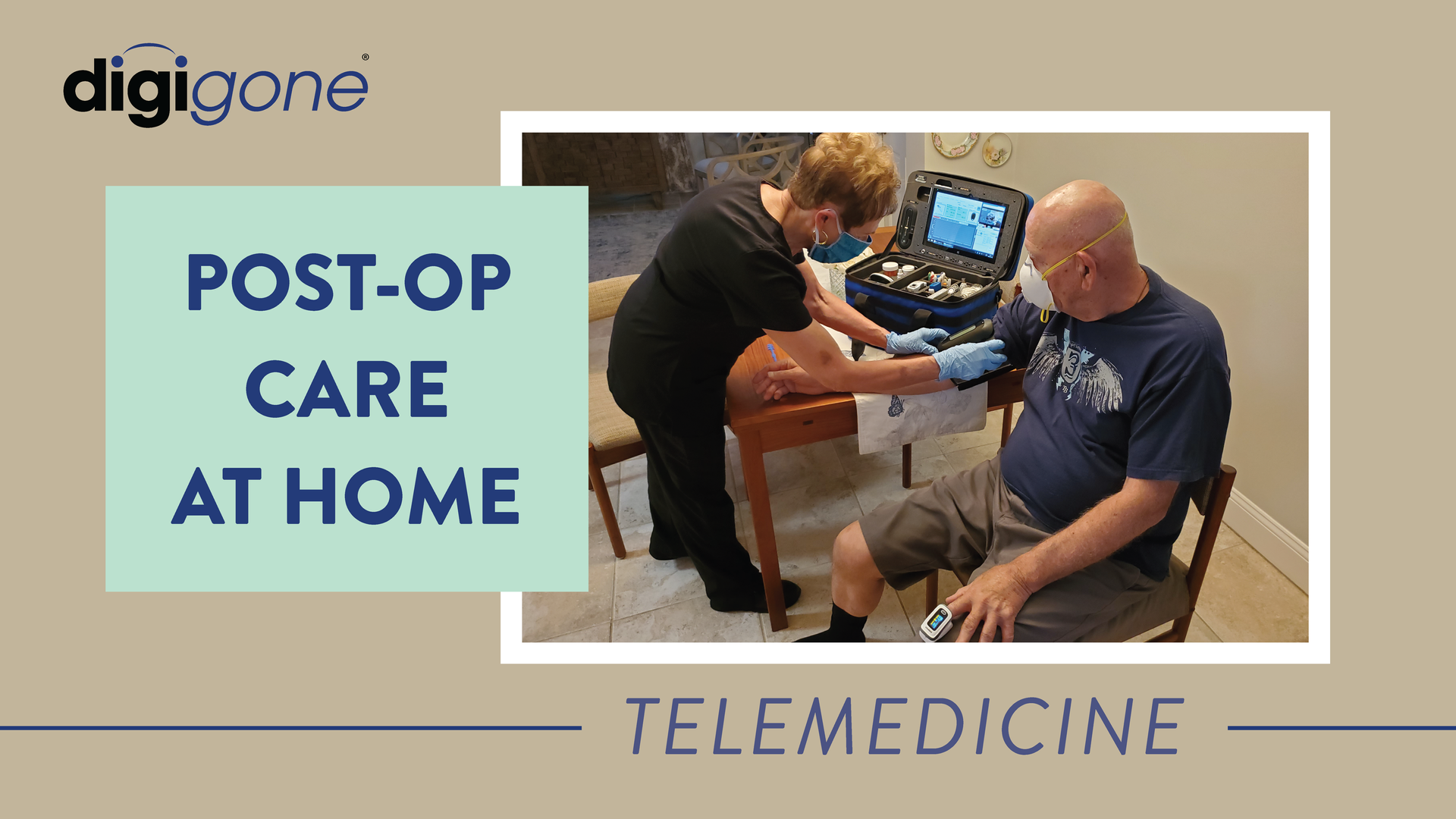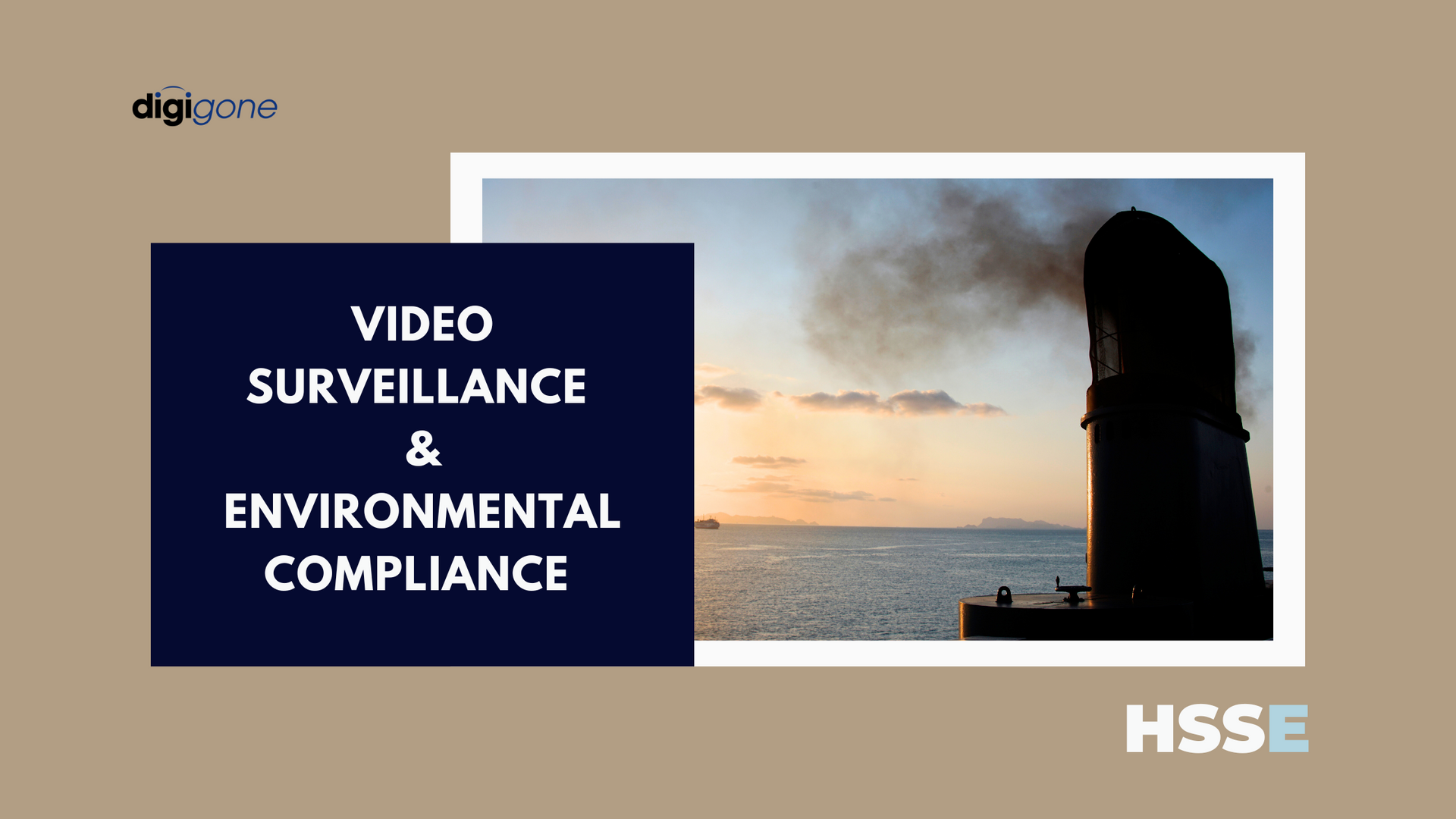Safer Seas Act Compliance and Solutions
digiGone offers a suite of custom solutions for compliance with the Safer Seas Act.
The Safer Seas Act (SSA) of 2022 is designed to make the maritime industry safer for all crew aboard a vessel. It sets forth new guidelines that all U.S. flagged commercial ships must follow regarding incidents of sexual assault and sexual harassment (SASH).
While the new act offers broad protections for seafarers, it also implements new requirements for security video, training, and reporting and penalties for noncompliance.
The
National Law Review recently provided a breakdown of the Safer Seas Act and the possible legal implications. The National Law Review advises:
“(...) vessel owners, operators and employers must and should be mindful of this new law and take action to comply with the SSA’s new reporting, training and surveillance requirements.”
Below we break down the three main elements and how digiGone along with our suite of solutions from
digiView can provide customized solutions.
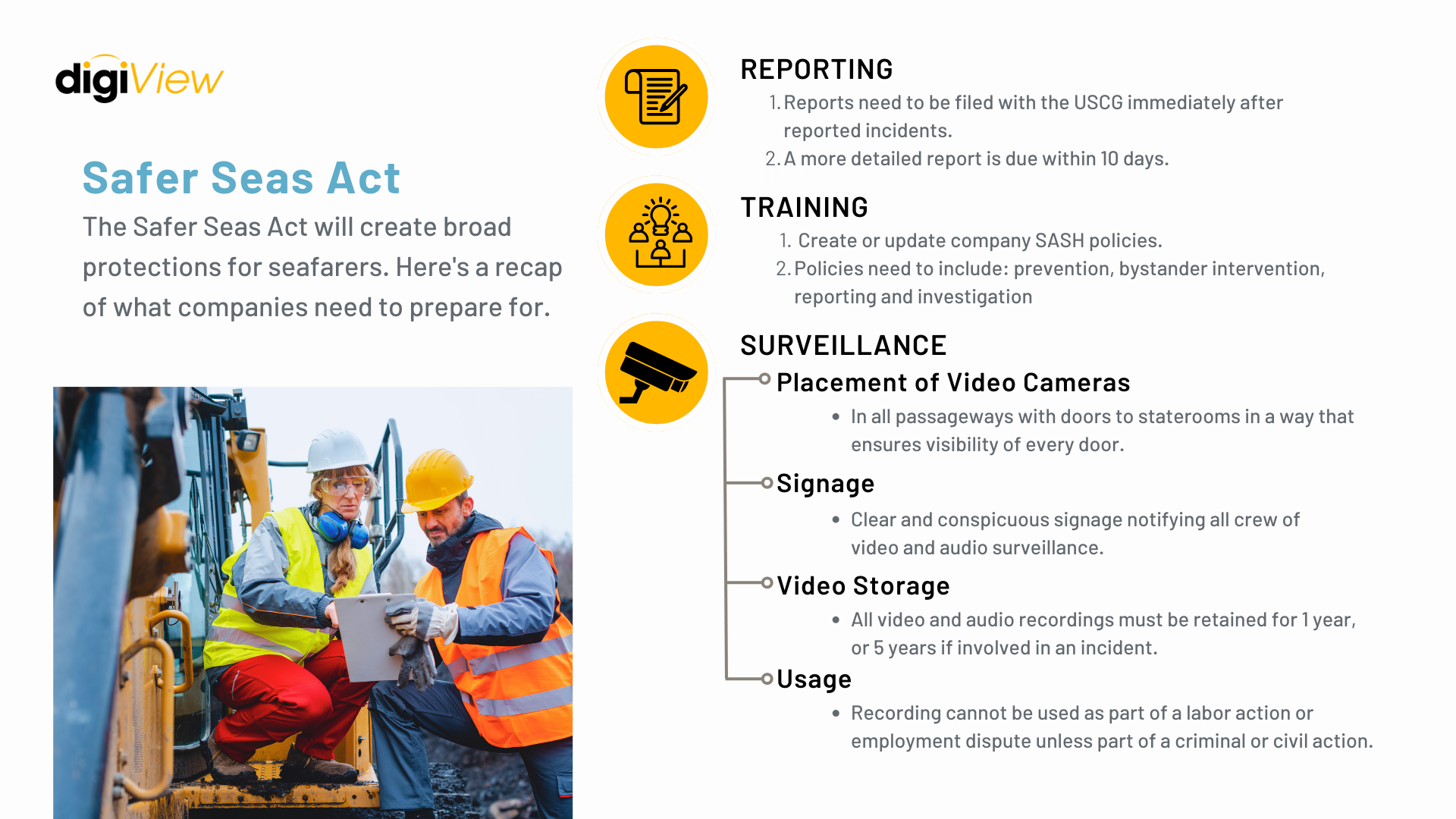
I. REPORTING
Under the new law, vessel owners and operators must report all SASH complaints and incidents that violate any law or company policy. These reports now must be made to the USCG “immediately” after the owner or operator gains knowledge of an incident.
The report must contain:
- Name, role, and contact information of the person making the report
- Name and official number of the vessel
- Time and date of the incident
- The geographic location of the vessel when the incident occurred
- A brief description of the sexual assault or harassment
After the initial report is sent to the USCG, a more detailed report must be sent within 10 days. The penalty for failing to send these reports ranges from $5,000 to $50,000 per violation.
II. TRAINING
All employers must ensure SASH and harassment policies and procedures are up-to-date and clear. Part of the SSA (46 U.S.C. § 3203) stipulates that SASH policies and procedures be part of a safety management system (SMS) that includes annual training covering prevention, bystander intervention, reporting, and investigation.
III. SURVEILLANCE
New Video Regulations
All vessels with 10 individuals on board for overnight accommodations on a voyage of more than 600 miles — along with a few other stipulations which can be found here — must maintain a video surveillance system, installed no later than December 23, 2024, or during the vessel’s next scheduled drydock, whichever is later (46 U.S.C. § 4901(c)(1)).
• Placement of Video Cameras
Video surveillance equipment has to be placed in all passageways on which doors from staterooms open, in a way that ensures visibility of every door in each passageway.
• Signage Requirements
Once installed, “clear and conspicuous signs” must be placed on board the vessel notifying all crew members of the presence of video and audio surveillance.
• Video Storage
All video and audio surveillance has to be retained for a minimum of one year after obtaining the footage. However, any video or audio associated with an alleged incident must be preserved for a minimum of five years after the alleged incident.
• Use of Video Recordings
Access to video and audio surveillance records cannot be used as part of a labor action against crews or for an employment dispute unless used as part of a criminal or civil action.
How DigiGone Can Help
Our forte is custom managed-bandwidth solutions, including surveillance systems, in austere environments. We can provide systems for specific vessels and fleets.
Below we break down exactly how digiGone and
digiView can provide a whole fleet or vessel solutions.
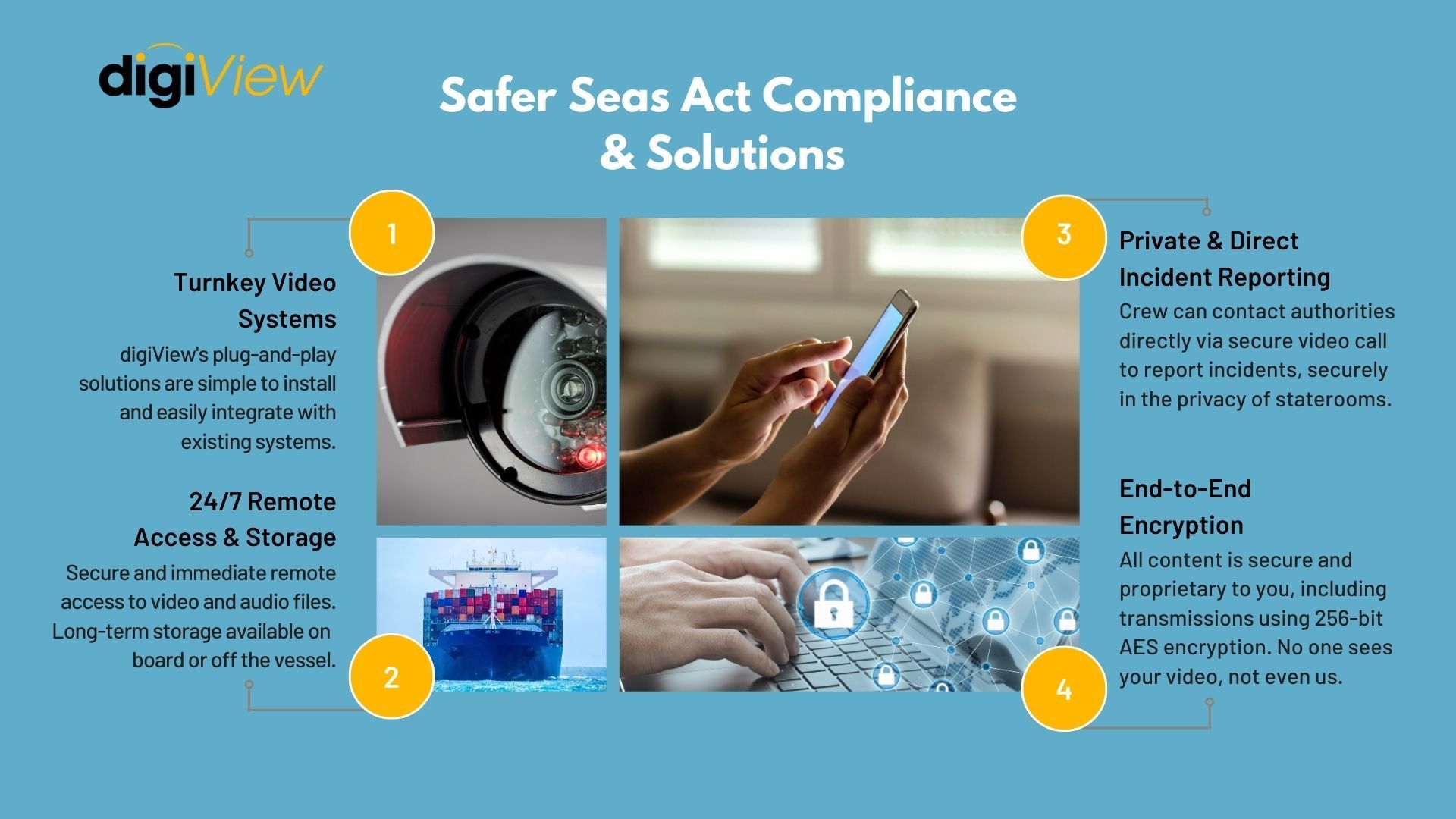
Beyond setting up these systems, one of the primary challenges with compliance is getting a detailed report to the USCG within 10 days: How will captains review all the necessary videos, capture still images, and transmit reports all while at sea? DigiGone can help you create a plan to ensure these new requirements are met timely and without disruption to operations at sea.
digiView Solutions
- Complete user-managed, remote oversight of video surveillance systems 24/7 from anywhere. digiView allows for on-demand live video streams, with multi-use viewing plus time and date stamps.
- End-to-end encryption along with fully proprietary and secure systems; no one (not even DigiGone) can access your surveillance.
- Customized system solutions for specific fleet or vessel needs. We offer high-def resolution systems designed to operate in the maritime environment.
- Our CrewChat product allows mariners to make secure and private calls, using minimal bandwidth — in their staterooms for reporting needs.
No matter your situation, digiGone's proprietary software and hardware solutions means we can customize plans. With more than a decade in the remote-maritime telemedicine and voice/video communications industry, we offer stewardship in these sectors. Contact us today for specific information at 727-544-2327 or email at info@digigone.com.
DigiGone is a veteran-owned, service-disabled business based in Largo, Florida.

